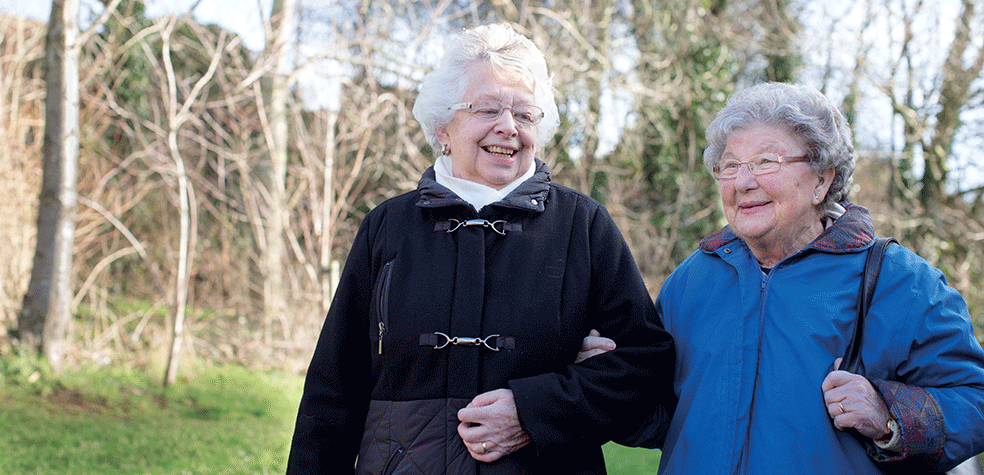Q&A: Healthy concern
 Sheelagh Donovan, Age UK’s health information specialist gets to the heart of your concerns. This issue we look at Alzheimer’s, fitness and depression.
Sheelagh Donovan, Age UK’s health information specialist gets to the heart of your concerns. This issue we look at Alzheimer’s, fitness and depression.
My husband has been diagnosed with Alzheimer’s disease. He’s become very withdrawn and isn’t interested in doing anything anymore. Might he be depressed?
Sheelagh says: It’s not unusual to experience a range of emotions in response to a diagnosis. Your husband may be feeling upset or angry and have concerns about what the future might hold. He may be finding it difficult to talk about this, particularly to people he is close to and has withdrawn into himself, as you describe it. It can sometimes help to talk to an outsider such as a counsellor or to find a group for people with a recent diagnosis, as talking with people who know what it’s like can really help.
It’s important to encourage your husband to recognise all the things he can do and realise he can live well with dementia. Perhaps you can persuade your husband to visit his GP to explain how he’s feeling and discuss the possibility of counselling. If you contact the Alzheimer’s Society they can tell you about groups in your local area or you can check their website. Your local Age UK may also be able to help with information and advice or any financial or other concerns you may both have. The Age UK Guide Living with Early Stage Dementia is a useful tool and could help you get your lives back on track.
My best friend died over a year ago. My husband says I should be getting over it by now, but I feel worse.
Sheelagh says: Adjusting to losing someone is gradual and happens differently for everyone. You may also find that some days are worse than others.
Some find it helpful to talk about the person and the good memories they shared. Others like to do something positive to keep the memory of their loved one alive, such as remembering them on their birthday or planting a tree in their memory.
Sadness is a natural response to bereavement. But if you’re struggling to cope with your emotions, or you feel you’re not coping with life, then it may be time to talk to your doctor.
For more information you can also call Age UK on 0800 678 1601.
Since retiring I’ve found I’m sitting around more. I’m not very fit and don’t want to join a class – where do I start?
Sheelagh says: A little exercise goes a long way. Keeping fit doesn’t necessarily mean trekking up a mountain – research shows that just getting out of your chair regularly to walk about can have a big impact on your health.
When we retire, it’s easy to forget the little things that boost our overall health – like walking to the bus stop every day.
‘If you’re sitting down for long periods, getting out of your seat every 20 minutes and walking about for two or three minutes is advantageous,’ says Professor James Goodwin, Head of Research at Age UK.
If you’re generally fit and have no health conditions, the Government recommends that you build up to doing two and a half hours of moderate activity throughout the week.
We want to hear from you!
If there are any issues you'd like covered, please contact Life magazine.
Also in this issue
Read more articles from the Spring 2017 edition of Life magazine.
